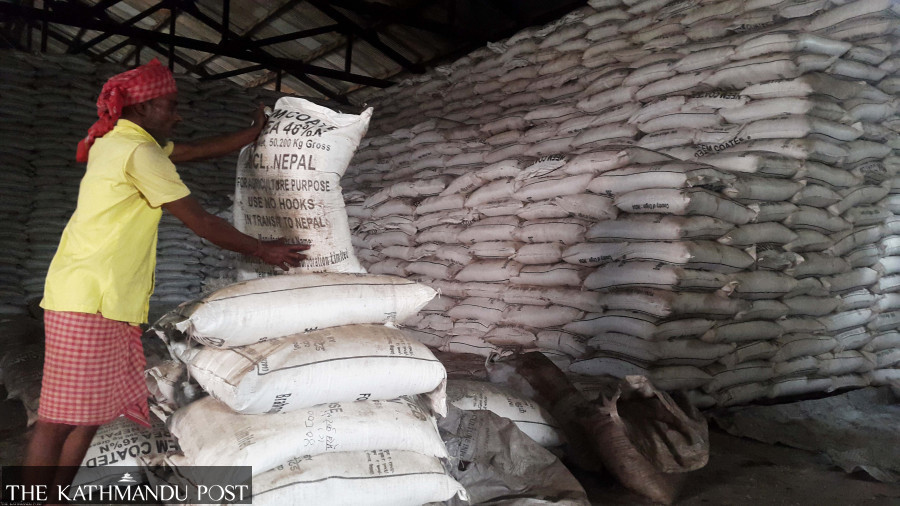Editorial
So what's new?
Bogus promises represent the callousness with which those at the top function.
That Nepal is an agricultural country sounds like a jest rather than a fact considering how we have increasingly become dependent on imported food for the past several decades. In the last two decades alone, the food import bill jumped 78 times to nearly $1 billion as Nepalis increasingly choose the easier route of splurging hard-earned money on imported food rather than growing it at home. Battered by the coronavirus pandemic, Nepal imported Rs112.59 billion worth of food from India alone in the year 2020-21, a 39 percent year-on-year increase, a large portion of the money going for the import of rice in a country obsessed with bhaat. If anything, we are staring at a food crisis of a monumental scale in the days to come.
And yet, little is done towards stemming the downward spiral of the country's agricultural prowess. Chemical fertiliser is a major element that exposes the discrepancy between the claim of being an agricultural country and the failure to protect the interests of the farmers. Each year, ministers and top government officials promise to supply enough fertilisers on time. And each year, when it is time to keep the promise, they crib about one problem or another that had led to the shortage, as if finding excuses about the lack of fertilisers right before the crop season is a ritual that has to be preserved and enacted each year.
As if to honour that annual ritual, Agriculture Minister Mahindra Ray Yadav on Monday lamented about the perennial nature of the fertiliser problem, blaming global rise in prices for this year's scarcity. The minister was not entirely wrong in blaming the global scenario, but little has been done to build warehouses and keep buffer stocks to ensure efficient and cheaper delivery of the plant nutrients in times of shortage and inflation. The minister also blamed the lengthy public procurement process for the inability to procure the required fertilisers in time. He was not wrong on this front too, as the procurement through the existing Public Procurement Act often takes six months for the procurement process to materialise, but he had no clues about expediting the process.
At the meeting, the minister did not fail to promise a chemical fertiliser plant as a panacea although the idea of such a plant in a country that cannot ensure timely procurement of even 500,000 tonnes of the nutrients, those in the know say, is bombastic. As the timely import of enough fertilisers remains a far cry, the minister's bogus promises represent the callousness with which those at the top function, remaining clueless about a remedy even though the problem is already at the door and everyone saw it coming. Ultimately, it is the same old story of promises not kept, lessons not learnt, and actions not taken in time. The fertiliser problem exposes the lack of accountability among those who govern us, but that should change immediately to avert a crisis looming large.




 14.12°C Kathmandu
14.12°C Kathmandu














